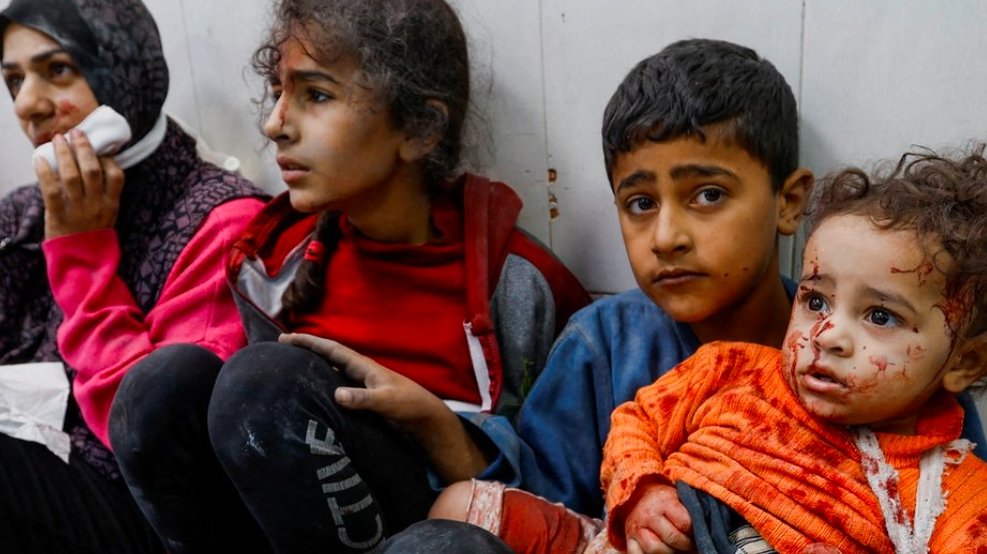Afghanistan is facing a dire situation as winter deepens and millions of people are at risk of hunger, disease and violence. A Scots UN aid worker who has been working in the country for over a decade has shared his insights and concerns with the Daily Record.
The challenges of delivering aid
David MacLeod, a senior humanitarian adviser for the UN Office for the Coordination of Humanitarian Affairs (OCHA), has been witnessing the unfolding crisis in Afghanistan since 2010. He said the situation has deteriorated dramatically since the Taliban takeover in August 2021.
“The humanitarian needs are enormous and growing by the day. We estimate that 23 million people, more than half of the population, are facing acute food insecurity and 8.7 million are on the brink of famine,” he said.
He added that the COVID-19 pandemic, a severe drought and the ongoing conflict have exacerbated the suffering of the Afghan people. “The health system is collapsing, the water supply is scarce, the education system is disrupted and the protection of civilians is under threat,” he said.
MacLeod said the UN and its partners are trying to deliver life-saving aid to the most vulnerable people, but they face many challenges, such as access, security, funding and sanctions.

“We have been able to negotiate access with the Taliban authorities, but we still face bureaucratic hurdles, checkpoints, roadblocks and attacks by armed groups. We also have to deal with the freezing weather, the mountainous terrain and the lack of infrastructure,” he said.
He said the UN humanitarian operation is severely underfunded, with only 40% of the $1.3 billion appeal met so far. He also said the sanctions imposed on the Taliban by the international community have hampered the flow of money and goods into the country, leading to a liquidity crisis and a collapse of the economy.
“We need more funding and more flexibility from the donors to be able to pay our staff, procure supplies and transport them to the field. We also need the sanctions to be eased or lifted to allow the banking system, the private sector and the civil service to function again,” he said.
The impact of the crisis on women and children
MacLeod said the humanitarian crisis in Afghanistan has a disproportionate impact on women and children, who make up 75% of the people in need of assistance.
“Women and girls are facing increased risks of gender-based violence, forced marriage, domestic abuse and sexual exploitation. They also have limited access to health care, education and livelihood opportunities,” he said.
He said the UN and its partners are advocating for the rights and protection of women and girls, and providing them with essential services, such as health, nutrition, education, water, sanitation and hygiene.
“We are also supporting women-led organizations and networks, and promoting the participation of women in decision-making and peace-building processes,” he said.
He said children are also bearing the brunt of the crisis, as they face malnutrition, disease, injury, displacement and trauma. He said the UN and its partners are providing children with food, health care, education, protection and psychosocial support.
“We are also working to prevent and respond to the recruitment and use of children by armed groups, and to reunite separated and unaccompanied children with their families,” he said.
The appeal for international solidarity
MacLeod said the humanitarian crisis in Afghanistan is not only a tragedy for the Afghan people, but also a threat to the regional and global stability and security. He said the international community has a moral and strategic responsibility to support the Afghan people and prevent a further deterioration of the situation.
“We are appealing for more humanitarian funding, more political engagement, more diplomatic dialogue and more humanitarian access. We are also calling for more respect for international humanitarian law, human rights and humanitarian principles,” he said.
He said the UN and its partners are committed to staying and delivering aid in Afghanistan, despite the risks and challenges. He said they are also ready to work with any authority that is willing to facilitate and protect their work.
“We are not here to take sides or to impose our views. We are here to save lives and alleviate suffering. We are here to help the Afghan people survive this crisis and build a better future for themselves and their children,” he said.


















